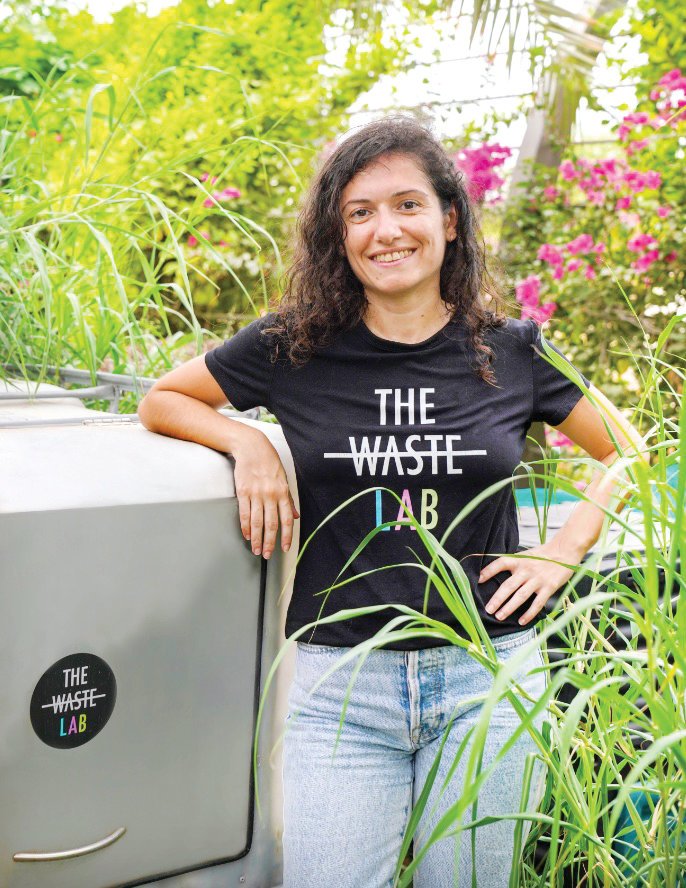DUBAI: Equipped with 551,000 dirhams ($150,000) in funding, The Waste Lab is bringing nature-based composting to business giants Hilton Group and Majid Al-Futtaim Group as it plans to turn Dubai’s desert sand into farmable soil.
Officially launching in the UAE, the startup would be tackling the issue of food waste in households and businesses, restoring ecological balance in the region.
The women-led company is creating solutions to benefit the UAE’s agricultural community, TWL CEO and Co-founder Lara Hussein told Arab News.
The company is entering the business-to-business space as part of its mission to reduce ecological vulnerability and increase community awareness about carbon footprints on a larger scale, she said.
TWL separates different kinds of food before recycling it, unlike its peers that put them together, said Hussein.
The company first understands the client’s requirements, their food disposal strategy and how their kitchen works. After the assessment, it provides training, consultancy, and a customized data collection scheme.
With clients like Hilton Group, Majid Al-Futtaim’s VOX Cinemas, Coffee Planet, and Pullman Dubai Creek City Center, TWL is a step closer to creating opportunities out of food scraps, said Hussein.
The Dubai-based startup is raising seed investments to scale up its operations and grow as more demand comes from B2B customers, like hotels, restaurants and other establishments, added Hussein.
In the beginning, TWL focused solely on households.
Its pre-seed investor, Incubayt Investments, contributed 551,000 dirhams in March 2022 to help TWL launch in the UAE. Incubayt also advises them on financial and strategic matters. “They’re more like our partner. We consider them as an extended part of our team,” Hussein said.
She added that the company is now onboarding four Hilton Group properties in Dubai, and around 14 other hotels are on the waiting list. It also provides services to over 120 households in the city.
The homegrown startup is driven by impact and data. “These are the two main pillars we focus on in whatever service, offering, communication, or language we put out there and project to the community and the people we work with,” she said.
TWL tracks data from the food waste collection to the retreatment and gives impact reporting based on that data. “We have talked to so many people, residents, businesses, and one of the things lacking are transparency and local data,” she said.
B2B leftovers and food scraps can range from 500 kg to 3,000 kg per month, while the business-to-consumer range from 20 kg to 25 kg per month, Hussein explained.
TWL employs low-tech equipment to back its nature-based solutions during ecological restoration.
The company is aligned with the UAE’s National Food Loss and Waste Initiative, Ne’ma, and aims to halve food waste by 2030 and achieve a net-zero carbon footprint by 2050.

